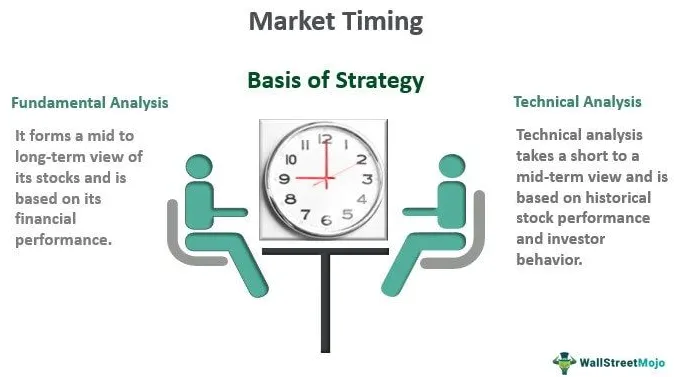Economic indicators are the compass of the financial world. They help investors navigate the constantly fluctuating market tides. These measures, which range from employment statistics to interest rates, include the hints needed to forecast market changes. However, what impact do they have on choices about market timing? By being aware of their role, investors may successfully manage risks and take advantage of opportunities, transforming uncertainty into a tactical advantage.Curious how economic indicators influence your market timing decisions?You can explore more on this topic on the official website.
Contents
Interpreting Market Timing Opportunities and Economic Cycles
Knowing the Growth, Peak, Contraction, and Trough of Economic Cycles
In finance, economic cycles are similar to seasons in that each stage presents unique opportunities and difficulties. Growing GDP, decreased unemployment, and increased consumer confidence are indicators of the expansion phase. Businesses frequently prosper during this time, and stock markets rise. Growth reaches its maximum at the peak, but inflation and rising interest rates could be signs of overvaluation.
Following this comes the contraction phase, characterized by a slowdown in the economy, lower expenditure, and more unemployment. For markets, this is frequently a testing period. Lastly, the trough denotes the economy’s lowest point, often the precursor to a comeback. Effectively scheduling investment decisions requires an understanding of these stages.
Investing Strategically Throughout Economic Cycles
Astute investors adjust their plans by these cycles. Growth equities and high-yield bonds, for example, frequently perform better during expansion. Conservative tactics, such as switching to cash or defensive equities, may reduce risks at the peak. Portfolios can be protected during contractions by concentrating on cheap assets or bonds. Purchasing growth-oriented assets that stand to gain from a rebound is best done during trough periods.
Examples of Successful Timing
Consider the case of investors profiting from the financial crisis’s aftermath. Many people who bought cheap tech stocks earned huge profits when the market rebounded. Similarly, industries such as technology and healthcare rewarded quick thinking during the COVID-19 expansion phase. Recall that time is not just a science, but also an art; an awareness of the larger cycle frequently determines victors and losers.
How Market Timing and Monetary Policy Interact?
How Central Bank Policies shape Market Trends?
Monetary policy manipulates the market. Central banks have enormous power thanks to instruments like interest rate changes and quantitative easing. Lower interest rates frequently fuel market rallies because borrowing becomes more affordable, which boosts economic activity. Rate increases, on the other hand, are intended to control inflation but may cause market declines.
The Impact of the Federal Reserve on Market Volatility
Markets may be shaken overnight by the Federal Reserve’s announcements. Take the “taper tantrum” of 2013, when the bond market abruptly sold off due to speculation of a reduction in quantitative stimulus. Conversely, rate reductions during the pandemic crisis in 2020 demonstrated the effectiveness of monetary measures by stabilizing collapsing markets.
Instances of Applying Policy Changes to Timing Choices
Investors frequently monitor these actions to plan. For example, bond investors typically switch to short-duration bonds before anticipated rate increases. Conversely, equity investors could gravitate toward growth stocks when interest rates are low. You risk soaking in losses if you ignore monetary policy, which can be compared to a financial weather forecast.
Behavioral Economics: Steer Clear of Market Timing Traps
Cognitive Biases That Impair Decision-Making
Unpredictability in the market may not always be as difficult as human psychology. Overconfidence is one common bias that causes investors to believe they can accurately forecast market moves. Misjudgments are frequently the result of anchoring bias, which occurs when decisions are primarily based on one piece of information. On the other hand, herd mentality causes people to follow trends mindlessly, which may result in late arrivals or departures.
The Influence of Emotional Control
Successful market timing frequently depends on emotional regulation. While greed during rallies tempts investors to make risky decisions, fear during downturns might cause them to sell too soon. Maintaining composure and concentration can make all the difference, even in tumultuous circumstances. Without emotional discipline, you’re lost in a storm. Think of it as your compass.
Methods for Breaking Through Psychological Obstacles
To overcome these prejudices:
- Make decisions based on facts rather than intuition.
- Establish and adhere to specific goals.
- To lessen your reliance on ideal timing, diversify.
- To guard against unforeseen losses, use stop-loss orders.
For example, during the 2021 meme stock mania, an investor who avoided herd mentality probably saved money. Success in market timing frequently entails overcoming one’s psychological obstacles.
Conclusion
Understanding economic indicators is similar to mastering the market’s language. These signals assist investors in precisely timing their moves and provide a road map for more intelligent investment choices. Even while no single sign can ensure success, using them with wise tactics can reveal untapped potential. The secret is to remain knowledgeable, disciplined, and flexible as the market environment changes.
